Mandating biometrics and tightening the rules for opening personal accounts has prevented up to 50% of fraud. However, there are cases of circumventing regulations by opening business accounts and bypassing biometric authentication to serve fraudulent purposes.
At the Smart Banking 2024 Conference and Exhibition, Deputy Governor of the State Bank of Vietnam Pham Tien Dung said that the digitalization rate of the banking industry is very high with strong growth, playing a connecting role with other industries and sectors in the economy. The banking industry has connected and integrated with data from the Ministry of Public Security , telecommunications, etc.
However, the Deputy Governor said that integrating with many units also brings risks related to security and operational disruption.
Although 38 million bank accounts have had their data cleaned, the number of fraud cases against individual customers has decreased significantly since the implementation of Decision 2345/QD-NHNN and Circular 17/2024/TT-NHNN, however, the Deputy Governor affirmed that there is no radical and perfect measure.
According to reports from credit institutions, after implementing biometric authentication, the number of fraud cases has decreased by 50% compared to before," Deputy Governor of the State Bank of Vietnam (SBV) Dao Minh Tu said in mid-October.
“Decision 2345 and Circular 17 have tightened the opening of personal accounts for individual customers. However, since then, there has been a situation of circumventing regulations by opening corporate accounts and bypassing biometric authentication for fraudulent purposes,” said Deputy Governor Pham Tien Dung.
Mr. Dung said that in the coming time, the banking industry will pay more attention to opening business accounts, to ensure the authentication of the legal representative of the business. When conducting business transactions, if the transaction is large, a signature is required to identify the responsible person, ensuring that when a problem occurs, the signer can be traced.
At the same time, Deputy Governor Pham Tien Dung also requested coordination with other ministries and agencies, because businesses are licensed by competent authorities. If the situation of not being able to identify the business owner is left, not only in the banking sector but also in all sectors, fraud will continue to occur.
Most banks are applying eKYC biometric authentication technology to identify accounts and verify customer identities, thereby preventing the risk of fraud, falsification, and information forgery.
However, there is currently a situation where high-tech criminals use tricks to "bypass" biometric authentication, such as using business accounts or using platforms like Facebook to "trap" customers.
According to Mr. Nguyen Viet Ha, Director of Information Security Planning, Techcombank , the bank is proactively working with IT companies, auditors, and business partners to equip assessment frameworks to detect risks early, thereby providing solutions to secure customer information and better secure authentication.
“If we do not continuously collect information about the problems that customers are facing, and do not have measures to ensure customers, it is very likely that hackers will take advantage of this to commit fraud, scams, and financial attacks. Therefore, Techcombank is also applying other technologies and measures to manage customer data and ensure safe access,” Mr. Nguyen Viet Ha shared.
The application of artificial intelligence (AI) has become a prominent trend for businesses globally in general and the banking sector in particular. According to Mr. Nguyen Quoc Hung, Vice Chairman and General Secretary of the Banking Association, 85% of banks have established an AI application strategy in building new products and services and more than 59% of employees are using AI in daily operations.
Banks’ spending on Generative AI (GenAI) is expected to increase to $85 billion by 2030, up from $6 billion in 2024, marking an increase of more than 1,400% in investment. This strong investment trend clearly shows the shift from traditional banking, Digital Banking to AI Banking.
Source: https://vietnamnet.vn/xuat-hien-tai-khoan-lach-xac-thuc-sinh-trac-hoc-de-lua-dao-2337043.html





![[Photo] Da Nang: Hundreds of people join hands to clean up a vital tourist route after storm No. 13](https://vphoto.vietnam.vn/thumb/1200x675/vietnam/resource/IMAGE/2025/11/07/1762491638903_image-3-1353-jpg.webp)











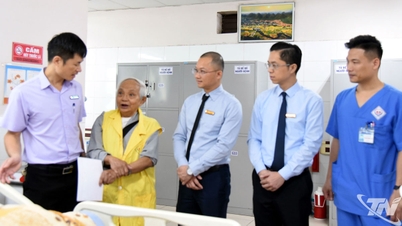














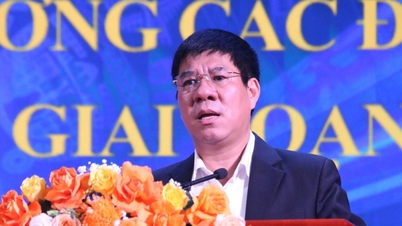

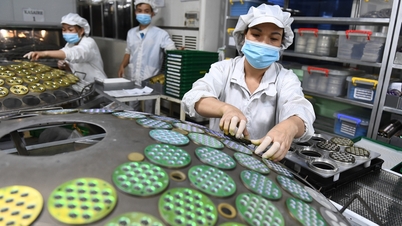

















































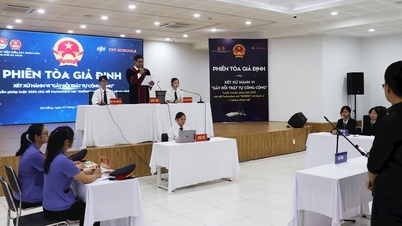



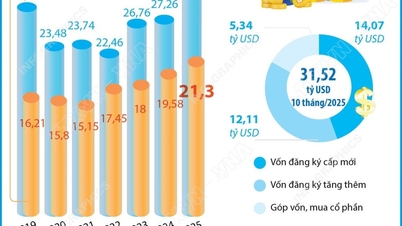



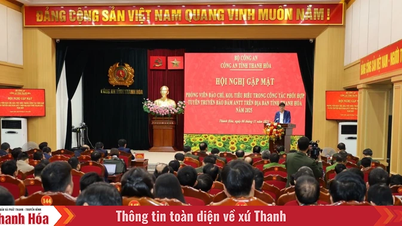
















Comment (0)